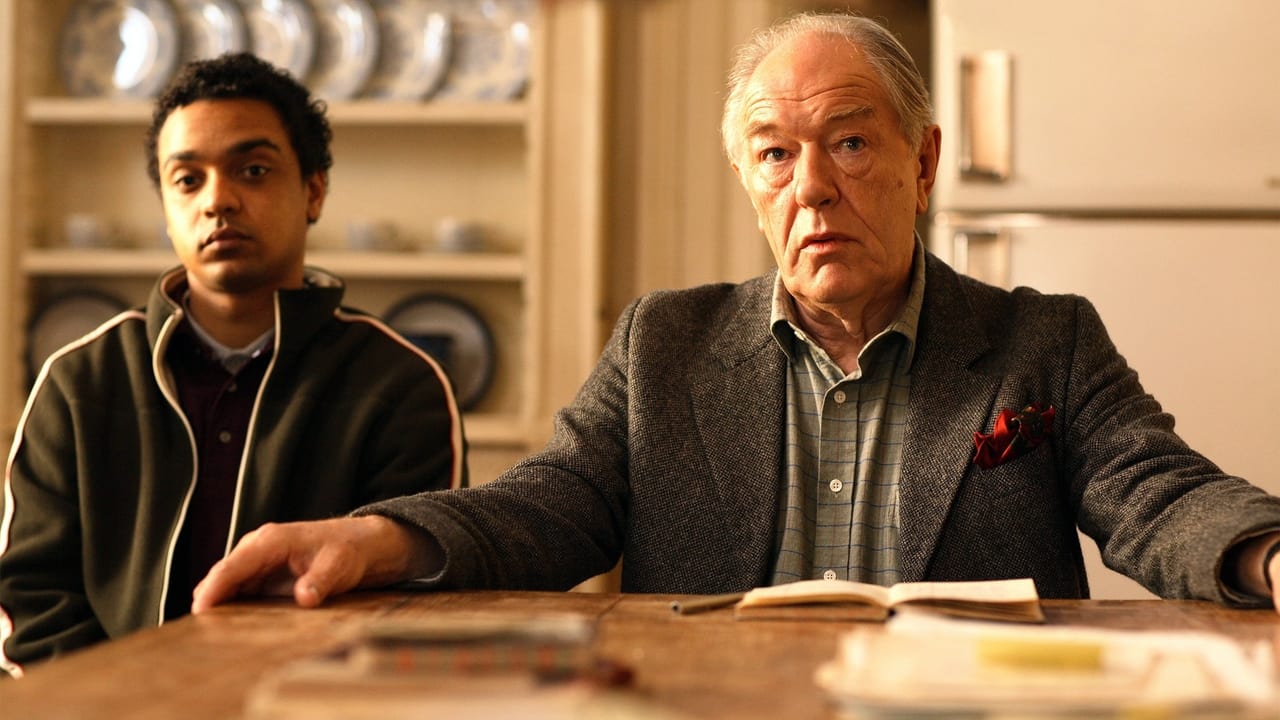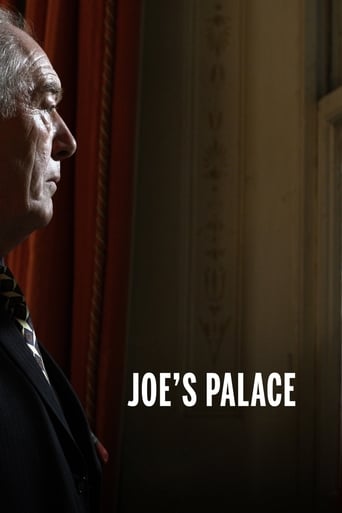Brightlyme
i know i wasted 90 mins of my life.
Platicsco
Good story, Not enough for a whole film
Odelecol
Pretty good movie overall. First half was nothing special but it got better as it went along.
Payno
I think this is a new genre that they're all sort of working their way through it and haven't got all the kinks worked out yet but it's a genre that works for me.
Judie Feldman
I agree with the first review here- I didn't want the film to end. All of the characters seem very realistic to me; the plot feels real; the performances are very focused and sincerely done, especially that of Michael Gambon, who really shines but is sly and subtle in this performance; the writing is very mature and paced very well. I didn't read any hints or reviews in advance so the turn in the plot near the end truly shocked and saddened me. I chose to view it because Janet Suzman recommended the author's work to me. Overall, I found the writing and the entire production to be very powerful. It haunted me for quite some time. Thank you, Ms. Suzman, for your advice, and makers of this work for a finely made film! (It's still available on HBOGO.)
bcs4
It's always a bit of a surprise to visit here after I've seen a wonderful movie. There are intelligent people that see it through eyes that are as valid as mine, yet they saw nothing as I did.I think it would be wise not to take too much from any of the reviews that you see here. If you are one of the lucky ones that see the film as I did, you will be rewarded by an experience that's as full as "Howard's End". If not, you'll likely know within the first 15 minutes and you can do something else.I thought the acting was as good as anything I've seen in the past couple of years. It wasn't just Gambon, it was pretty much across the board. Wynter was unbelievably good. Kelly Reilly was perfect.If you haven't read the spoilers yet, don't. This movie is subtle. Give it a try.
AlanJenney
Several years have passed since his father's death and a billionaire (played by Gambon) finds himself stuck, unable to make a decision about what to do with his inherited fortune that he suspects was built on ill-gotten funds. Everything has been put on hold in his life including a house (once the family home), which is still staffed and cleaned despite being largely empty, opposite his place of residence in London.The "Joe" of the title is employed to work as doorman at the vacant house. He mumbles his words and has a vacant look throughout the film. Through his uninspiring diary entries, we listen to the lives of those who come and go.Many of the characters connected to the house are lonely in one way or other: the doorman that Joe replaces; the cabinet minister who brings a mistress to the empty house to "make use of an upstairs room"; the housekeeper and her oppressed staff; the homeless man and the night security guard; Mr. Graham himself. You wish for some drama to happen and although each has their own scene in the sequence of events, nothing of real consequence happens.This depressing atmosphere runs through the entire film. So the one moment of real emotion that occurs is heightened by this empty background.The main plot line is that Elliot Graham recalls moments from his childhood and suspects his father accepted money and gifts from the Nazis. Researchers turn up nothing out of the ordinary in his financial dealings but one of his father's diary entries is discovered by the shop assistant from the local Delicatessen. The diary speaks of his father witnessing the humiliation of Jews whilst arranging a business deal in a park in Germany. Days later, Graham heads off to a castle and Joe tags along. It turns out Graham has gone there to commit suicide. In the only poignant scene of the film, Joe sees a gun in Graham's hand and he rushes him.Strangely, we are then robbed of the chance to see the struggle between man and boy. From this point until the end of the film, things just fall down into sentiment.Much of this film seems then appears unlikely or uninspiring...(a) The politician's mistresses are a long-lasting sub-plot which begs to go somewhere, but instead it fades away.(b) It seems bizarre that the historians and researchers do not turn up anything about the Third Reich business arrangements and it's only the diary entry that says anything about it. The implication is that they are either afraid of Mr. Graham or do not make any connection to what he wants to know.(c) Despite all the other information that comes his way, Joe does not enquire about the only interesting thing that is discovered about Mr. Graham before the suicide attempt. Yet in the closing monologue, Joe professes to have been behind the old man's rehabilitation. Really, he's been a bystander to much of what happened.(d) Elliot Graham comes out of his reclusive state simply by returning the trinkets to relatives of the family they were taken from. This seems to place little consequence on the circumstances in which they were taken and makes his earlier indecision and suicide attempt appear extreme. After all, exactly what he suspected had been uncovered.Disappointingly, it is only Michael Gambon's welcome appearances that hold a lot of this together. Without him, there's barely anything to commend about this story.
paul2001sw-1
Michael Gambon is one of Britain's finest actors, and Stephen Poliakoff one of our more interesting dramatists; but rubbish is rubbish, and sadly, 'Joe's Palace' is not very good. Polliakoff has for a long time been interested in the aesthetics of aristocracy (and concordantly sympathetic to the beautiful), but in this film, he indulges these sentiments in the absence of any meaningful context. A reclusive billionaire does nothing with his life because he is consumed by what he fears his father might have done, although he apparently has no idea what this might have been; several historians fail to discover anything, but the girl from the local deli proves a better researcher than them and discovers that the father had been sympathetic to Nazi values; despite having always assumed that his Dad had been a Nazi collaborator anyway, this persuades the billionaire to think of suicide, although not very hard. Then he gives away a tiny proportion of his wealth (some things his father has stolen) and lives happily every after. Meanwhile, he employs a collection of social misfits (a familiar Poliakoff theme) to staff a huge London house he keeps empty; one of them, Joe, a young man with learning difficulties, is patronised by everyone telling him "what a bright boy" he is and watches silently everything that happens, commenting innanely in his diary but somehow becoming everyone's confident. A slick politician (played by Rupert Penry-Jones, who invests his lines with exaggerated faux-earnestness) and his beautiful mistress (plated by Kelly Reily, who emotes breathlessly but is also unconvincing), also feature for little apparent reason. Meanwhile, everywhere is empty: not just the house, but the streets and parks of London; in every scene, the background is blank, so the Polliakoff can maintain his trademark atmospherics, although you'll never see real life looking like this. The film as whole, meanwhile, is self-important but no less empty, devoid of real meaning and life, with no real dialogue (a scattering of monologues substitute for it) and, criminally for a film starring Gambon, desperately dull.

